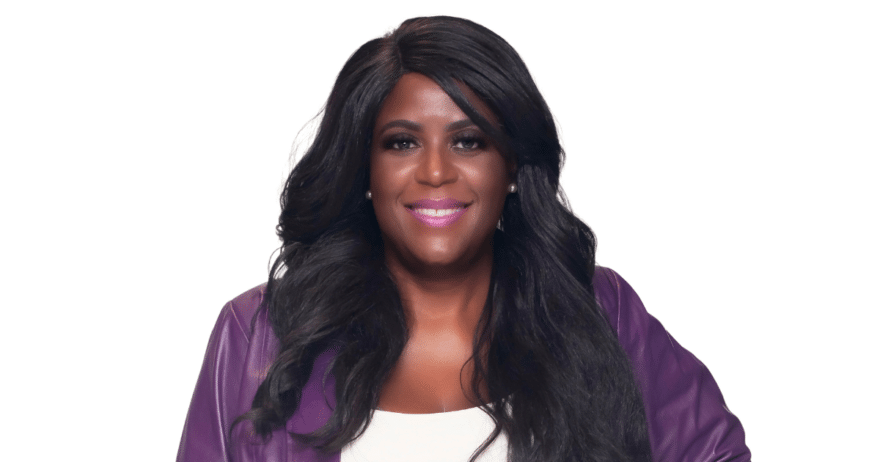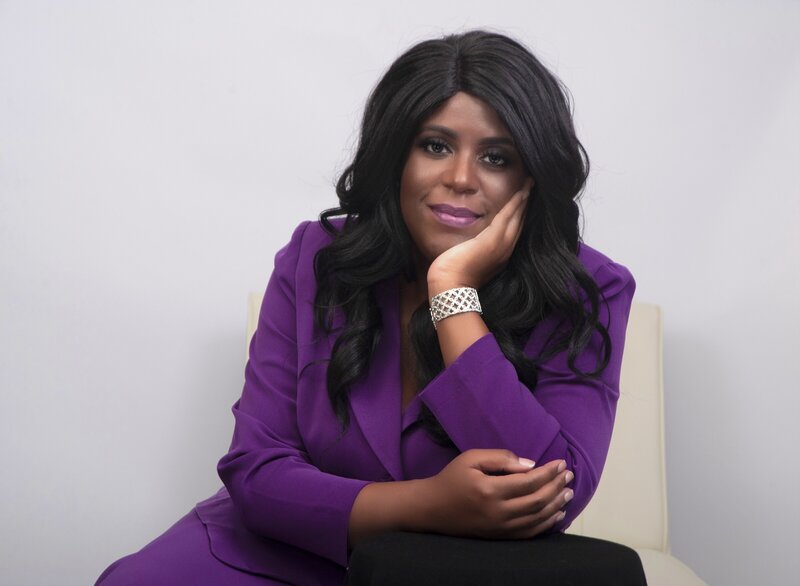June 10, 2024
The Unique Struggles of Black Women in Corporate Environments
Reaching the summit of a career should be a moment of triumph. However, for many Black women, this achievement is often overshadowed by loneliness and isolation at work. According to the 2023 Women in the Workplace Study, the “broken rung” is the greatest roadblock women face on the path to senior leadership. And more Black women are left behind at the “broken rung” more than any other women. Which means there are far fewer Black women promoted to c-suite and board positions.
Despite their hard work and perseverance, Black women frequently find themselves as “the only” Black woman in the room. Battling not just professional challenges but also the invisible barrier of feeling unseen and unheard. The journey is marked by unique obstacles that their peers may never face.
While career progression typically involves navigating office politics and proving one’s worth, Black women also contend with significant emotional and psychological strain. This isolation is not just a side effect of success but a significant barrier that impacts mental health, job satisfaction, and overall career advancement.

The Reality of Isolation. Why Black Women Feel Alone and Isolated at Work.
Isolation is a widespread issue among Black women in not only corporate settings, but in nonprofit settings as well. This experience goes beyond physical solitude. It encompasses a consistent lack of representation and support, which intensifies feelings of alienation and stress.
- Lack of Representation and Role Models
In many industries, Black women are significantly underrepresented in leadership roles. The absence of role models who share their experiences can make the climb to the top stressful and lonely. This lack of representation reinforces the notion that they are outliers in their fields, further intensifying the feeling of isolation. Without mentors who understand their unique challenges, Black women often feel like they are navigating their careers in the dark.
- Microaggressions and Subtle Discrimination Increase Isolation
Microaggressions, the subtle and often unconscious expressions of racism, are a daily reality for many Black women in the workplace. These can range from comments about their natural hair to assumptions about their capabilities. Over time, these microaggressions accumulate, creating an environment where Black women constantly have to prove their worth and resilience. This relentless need to validate their presence can erode their confidence and contribute to feelings of being an outsider.

- Black Women Feel Alone at the Top when They’re The “Only” at Work
Being the only Black woman in meetings or entire departments is a common experience. This “only” status amplifies feelings of vulnerability and exclusion. The pressure to represent an entire race while trying to navigate personal career goals can be overwhelming. It is not just about professional performance. It is about breaking stereotypes and dispelling myths, often without any support. The burden of being the sole representative of your race in high-stakes discussions is immense, adding to the emotional strain.
- Lack of Representation Impacts Career Growth
Without mentors or peers who understand their unique challenges, Black women can find it challenging to advance. This gap not only hampers their career progression but also perpetuates the cycle of isolation. The informal networks that facilitate career growth are largely inaccessible, leading to exclusion from key decision-making processes and further isolation.
- Research on Loneliness of Black Women at Work
A survey conducted by LeanIn.Org and McKinsey & Company (2023) found that Black women are less likely to have strong allies at work. Many Black women often feel like they are navigating their career with a blindfold on. Few people of color are available to provide guidance, constant microaggressions at work create psychologically unsafe environments. All which leave Black women questioning their worth.
These insights reveal the profound impact of isolation on Black women’s careers and mental health. Addressing this issue requires a concerted effort to create more inclusive and supportive work environments where Black women can thrive without the burden of loneliness.
Impact on Career Progression and Mental Health
The experience of isolation for Black women in leadership roles is a significant issue that affects both career progression and mental health. As they climb the corporate ladder, the support network often thins, leaving them to navigate challenges alone. This isolation can have profound implications.
- Stunted Career Growth Due to Lack of Networking and Mentorship: Isolated at Work
Networking and mentorship are essential for career advancement. For many professionals, these connections provide guidance, opportunities, and support. However, Black women often find these networks less accessible. The absence of mentors who understand their unique challenges can hinder career growth, limiting opportunities for advancement and professional development.
- Loneliness at Work Increases Stress and Anxiety Levels
Isolation at work impacts not just career progression but also mental health. The constant need to prove oneself, coupled with the lack of support, can lead to increased stress and anxiety. This ongoing mental strain can affect overall well-being, making it challenging to maintain a healthy work-life balance.
- Long-Term Career Impacts of Isolation: Black Women Leaders Feeling Alone
The long-term effects of isolation can be detrimental to career progression. Without the support of mentors and peers, Black women may find themselves overlooked for promotions and critical projects. This lack of advancement opportunities can lead to stagnation and professional dissatisfaction.
- How Isolation at Work Spills Over into Personal Life:
Isolation at work can deeply affect personal life, creating a ripple effect that impacts mental and emotional well-being. The stress and anxiety from feeling alone in a professional setting can lead to strained relationships and a diminished quality of life. The emotional toll of an unsupportive work environment can make it difficult to be fully present with family and friends, impacting overall happiness and personal fulfillment.
These insights reveal the profound impact of isolation on Black women’s careers and mental health. Addressing this issue requires a concerted effort to create more inclusive and supportive work environments where Black women can thrive without the burden of loneliness.
Strategies to Combat Isolation
A. Building a Supportive Network
The journey to the top can be lonely, but it doesn’t have to remain that way. Black women in leadership positions can take several steps to combat feelings of isolation and build a supportive network that fosters both personal and professional growth. These strategies are essential in creating an inclusive environment where Black women can thrive without feeling isolated.
- Finding Mentors and Allies: Isolated at Work
Finding mentors and allies is crucial for overcoming isolation. In predominantly white environments, this can be particularly challenging, but it is not impossible. Start by seeking out individuals who have shown an understanding and commitment to diversity and inclusion. This can be within or outside of your immediate work environment.
Steps to Find Mentors:
- Identify Potential Mentors: Look for leaders who value diversity and have a track record of mentoring others.
- Leverage Existing Networks: Use professional organizations and affinity groups dedicated to supporting Black professionals to connect with potential mentors.
- Be Proactive: Reach out to potential mentors with a clear ask and be prepared to discuss your goals and how you hope they can assist you.
B. Leveraging Professional Organizations and Networks
Professional organizations and networks offer invaluable resources for combating isolation. These groups provide opportunities to connect with others who share similar experiences and challenges.

How to Leverage Networks:
- Join Relevant Organizations: Become a member of professional associations that focus on Black professionals or your specific industry.
- Attend Events and Conferences: Participate in networking events, workshops, and conferences to expand your professional network.
- Engage in Online Communities: Utilize social media platforms and online forums to connect with like-minded professionals.
By actively engaging in these networks, Black women can find a sense of community and support that mitigates feelings of isolation.
C. Self-Care and Mental Health Resources: Isolated at Work
Prioritizing self-care and mental health is vital for anyone feeling isolated at work. The emotional toll of isolation can be significant, so it’s essential to have strategies in place to manage stress and maintain mental well-being.
Self-Care Strategies:
- Practice Mindfulness: Incorporate mindfulness techniques such as meditation or deep breathing exercises into your daily routine to reduce stress.
- Seek Professional Support: Engage with a therapist or counselor who can provide support and coping strategies tailored to your experiences.
- Create a Support Network: Surround yourself with friends, family, and colleagues who offer emotional support and encouragement.
Taking care of one’s mental health is not just about managing stress but also about fostering resilience and maintaining the energy needed to navigate professional challenges effectively.
Organizational Support: Addressing Isolation Black Women Professionals
Organizations play a critical role in supporting Black women and addressing professional isolation. Companies must take proactive steps to create an inclusive and supportive work environment.
Steps for Organizations:
- Implement Mentorship Programs: Develop structured mentorship programs that connect Black women with leaders committed to their growth and success.
- Promote Diversity and Inclusion: Foster a culture of diversity and inclusion through policies, training, and practices that support all employees.
- Provide Resources: Offer access to mental health resources, employee resource groups, and professional development opportunities.
By taking these actions, organizations can help reduce the feelings of isolation that many Black women experience in leadership roles.
Conclusion: Overcoming the Lonely Climb
Throughout this blog, we have explored the unique challenges that Black women face as they ascend to leadership roles. We highlighted the reality of isolation, driven by a lack of representation and support. The absence of role models and mentors creates a professional environment where Black women often feel like outliers, navigating their careers without the necessary guidance and support.
The impact of this isolation is profound, affecting both career progression and mental health. The constant need to prove oneself in an unsupportive environment leads to increased stress and anxiety. Balancing professional responsibilities with personal life becomes even more challenging, contributing to a sense of emotional and physical exhaustion.
Strategies to Combat Isolation when Black Women Feel Alone at the Top of Their Careers
However, there are actionable strategies to combat these feelings of isolation. Finding mentors and allies is crucial. Leveraging professional organizations and networks provides a sense of community and support. Prioritizing self-care and accessing mental health resources are essential steps in maintaining overall well-being.
Additionally, investing in a career coach, especially one who is culturally sensitive and understands your unique journey, can be transformative. A career coach who comprehends the specific challenges faced by Black women can offer tailored guidance and strategies that resonate with your experiences. Organizations also have a significant role in creating inclusive environments that support the professional growth of Black women.
Take the First Step Towards Overcoming Loneliness and Isolation
It’s time to take the first step towards building a more inclusive and supportive professional network. By implementing these strategies, Black women can transform their experiences from isolation to empowerment. Imagine a future where the summit of your career is not a solitary peak but a thriving community of like-minded professionals who understand and support your journey.
To start this transformative journey, consider signing up for a Career Solution Consultation call with me. Let’s work together to overcome the barriers of isolation, build a strong network of support, and create a fulfilling and balanced professional life. Your success should be celebrated, not overshadowed by loneliness. Take this step today and turn your career climb into a collective ascent towards success and fulfillment.

I’m an ICF Professional Certified Coach (PCC) and career coach for Twanna Carter Professional & Personal Coaching, LLC. I failed my first career transition from the military so badly, it took me the next 10+ years to build my confidence and recover. I know what it feels like to struggle with imposter syndrome and uncertainty about my worth in the workplace. It’s why I am dedicated to empowering Black women. Helping them navigate change and uncertainty by providing them with the tools and strategies they need to be successful. Schedule a free 30-Minute Career Solution Call today.
Watch my latest video, “5 Reasons Black Women Feel Alone at the Top of Their Careers,”
Curated Reads: Essential Books to Add to Your Personal Library
- Melaninated Magic: 180 Affirmations to Nurture Your Soul and Unleash Your Black Girl Joy by Twanna Carter, PhD
- Sacred Rest: Recover Your Life, Renew Your Energy, Restore Your Sanity by Saundra Dalton-Smith, MD
- I’m Not Yelling: A Black Woman’s Guide to Navigating the Workplace (Successful Black Business Women), Elizabeth Leiba.
- Crucial Conversations: Tools for Talking When Stakes Are High by Kerry Patterson, Joseph Grenny, Ron McMillan, and Al Switzler.
- Influence: The Psychology of Persuasion by Robert B. Cialdini.
- How to Win Friends and Influence People by Dale Carnegie.
- Lean In: Women, Work, and the Will to Lead by Sheryl Sandberg.
- Dare to Lead by Brene Brown.
- The Memo, by Minda Harts.
- Atomic Habits: An Easy & Proven Way to Build Good Habits & Break Bad Ones, by James Clear
- Worthy: How to Believe You Are Enough and Transform Your Life, by Jamie Kern Lima
- 33 Tools to Remake Your Career by Paul Gabriel Dionne
Read these blogs next…
- Executive Burnout Recovery – 9 Powerful, Proven StrategiesExecutive Burnout Recovery Executive burnout recovery is not about weakness, failure, or lack of resilience. For Black women executives, it is often… Read more: Executive Burnout Recovery – 9 Powerful, Proven Strategies
- The Hidden Cost of Being the Strong One at WorkUnderstanding the “Strong One at Work” Persona There’s always that one person in the office, the one everyone turns to when things… Read more: The Hidden Cost of Being the Strong One at Work
- Quiet Cracking: 7 Signs You’re Not ‘Fine’. You’re Burning Out in SilenceQuiet Cracking, When “I’m Fine” Isn’t the Truth You show up. You meet deadlines. You answer messages with a polite “I’m fine.”But… Read more: Quiet Cracking: 7 Signs You’re Not ‘Fine’. You’re Burning Out in Silence
- Are You Trapped in Survival Mode? The Real Reason It’s Not Your Fault (and What to Do Next)Are You Trapped in Survival Mode? What “Survival Mode” Really Means For many Black women, survival mode isn’t just a phrase, it’s… Read more: Are You Trapped in Survival Mode? The Real Reason It’s Not Your Fault (and What to Do Next)
- Why So Many Smart Black Women Experience Fear of Starting a Business, and Feel Completely StuckThe Quiet Struggle Behind Big Dreams Many intelligent, capable Black women dream of owning a business. They envision freedom, flexibility, financial growth,… Read more: Why So Many Smart Black Women Experience Fear of Starting a Business, and Feel Completely Stuck
- Strategic Career Mapping for Executive Black Women: How to Identify Roles That Reflect Your True StrengthsWhy Strategic Career Mapping Matters More Than Ever In today’s corporate landscape, Strategic Career Mapping has become more than just a buzzword.… Read more: Strategic Career Mapping for Executive Black Women: How to Identify Roles That Reflect Your True Strengths
- The Fear-Based Leadership Cycle Secretly Running Your Life. And How to Break ItFear is a powerful emotion. It can protect you, warn you, and heighten your awareness. But when fear begins to lead you,… Read more: The Fear-Based Leadership Cycle Secretly Running Your Life. And How to Break It
- Redefining Success. How Black Women Executives Are Leading a New Era of Authentic LeadershipThe New Leadership Trend. Redefining Success Across boardrooms, Zoom calls, and LinkedIn feeds, a powerful shift is underway. Women of color, especially… Read more: Redefining Success. How Black Women Executives Are Leading a New Era of Authentic Leadership
- How to Quiet the Inner Critic and Stop Second-Guessing Yourself in High-Stakes RoomsUnderstanding the Inner Critic Your inner critic is that persistent internal voice that judges, doubts, and second-guesses you. Ooften at the worst… Read more: How to Quiet the Inner Critic and Stop Second-Guessing Yourself in High-Stakes Rooms
- The Survival Blueprint. What To Do Immediately When You Realize You’re Being Managed OutUnderstanding What “Being Managed Out” Really Means. And Why Immediate Help Matters The first time I realized I was being managed out,… Read more: The Survival Blueprint. What To Do Immediately When You Realize You’re Being Managed Out
- 10 Powerful Reasons Why Black Women Entrepreneurs Are Leading the Rise of EntrepreneurshipWhy Black Women Entrepreneurs Are Leading the Rise of Entrepreneurship Entrepreneurship has always symbolized courage, innovation, and self-determination. And no one represents… Read more: 10 Powerful Reasons Why Black Women Entrepreneurs Are Leading the Rise of Entrepreneurship
- The Leadership Myth That Hurts High-Achieving Black Women. Why Slowing Down Doesn’t Make You Weak.Slowing Down Doesn’t Make You Weak Leadership isn’t just about speed, stamina, or sacrifice. It’s about authenticity, vision, and sustainable strength. Yet,… Read more: The Leadership Myth That Hurts High-Achieving Black Women. Why Slowing Down Doesn’t Make You Weak.



















+ show Comments
- Hide Comments
add a comment